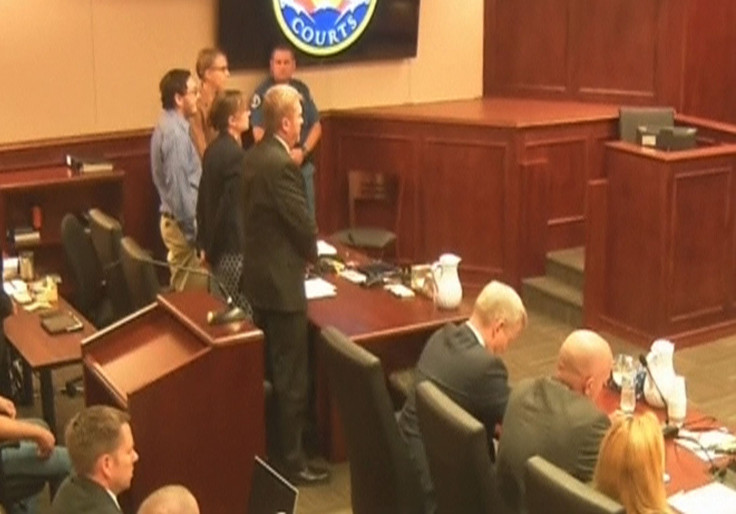James Holmes Murder Trial: One Juror Opposed Death Penalty For Colorado Movie Theater Shooter

One of the jurors in James Holmes’ murder trial was adamantly against use of the death penalty to punish the man who killed 12 people in an Aurora, Colorado, movie theater in 2012. Holmes, 27, was sentenced Friday to life in prison without the possibility of parole, a verdict that stunned many victims’ family members who sat in the courtroom.
In Colorado, the death penalty can be approved only by a unanimous vote. Of the 12 jurors, nine were in favor of the death penalty, but they were unable to convince the dissenter to consider the punishment.
“There was one solidly held out, and the others, there was two who were not completely decided,” Juror 17, who declined to give her name, told Sky News. “But at that point, where we knew that one was an absolute holdout, we ended the deliberations because that person was solidly in favor of the life sentence.”
Holmes wore body armor and carried a variety of weapons July 20, 2012, when he walked into a midnight showing of “The Dark Knight Rises” and opened fire on moviegoers, killing 12 people and injuring 70. The defense argued mental illness was a key factor in Holmes’ actions and asked the jury to spare his life. The jury rejected the insanity plea and found Holmes guilty in July of 165 felony charges, but concerns about his mental state factored heavily into penalty phase deliberations.
“Mental illness played into the decision more than anything else,” one of the jurors, who remained anonymous, told Fox News. “All the jurors feel so much empathy for the victims. It’s a tragedy.”
The decision drew a range of emotions from family members of the victims. Some cried, while others were angered Holmes escaped the death penalty, the New York Times reported.
“He’s still living and breathing,” said Robert Sullivan, whose 6-year-old granddaughter Veronica Moser-Sullivan was killed. “Our loved ones are gone.”
© Copyright IBTimes 2024. All rights reserved.





















